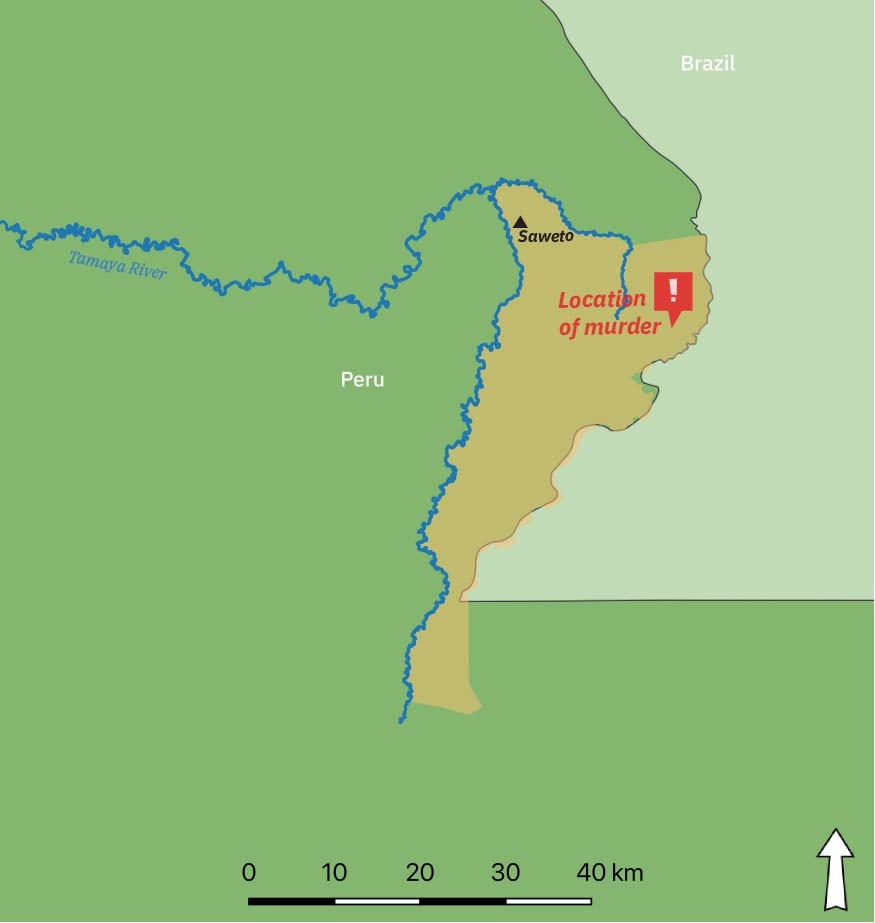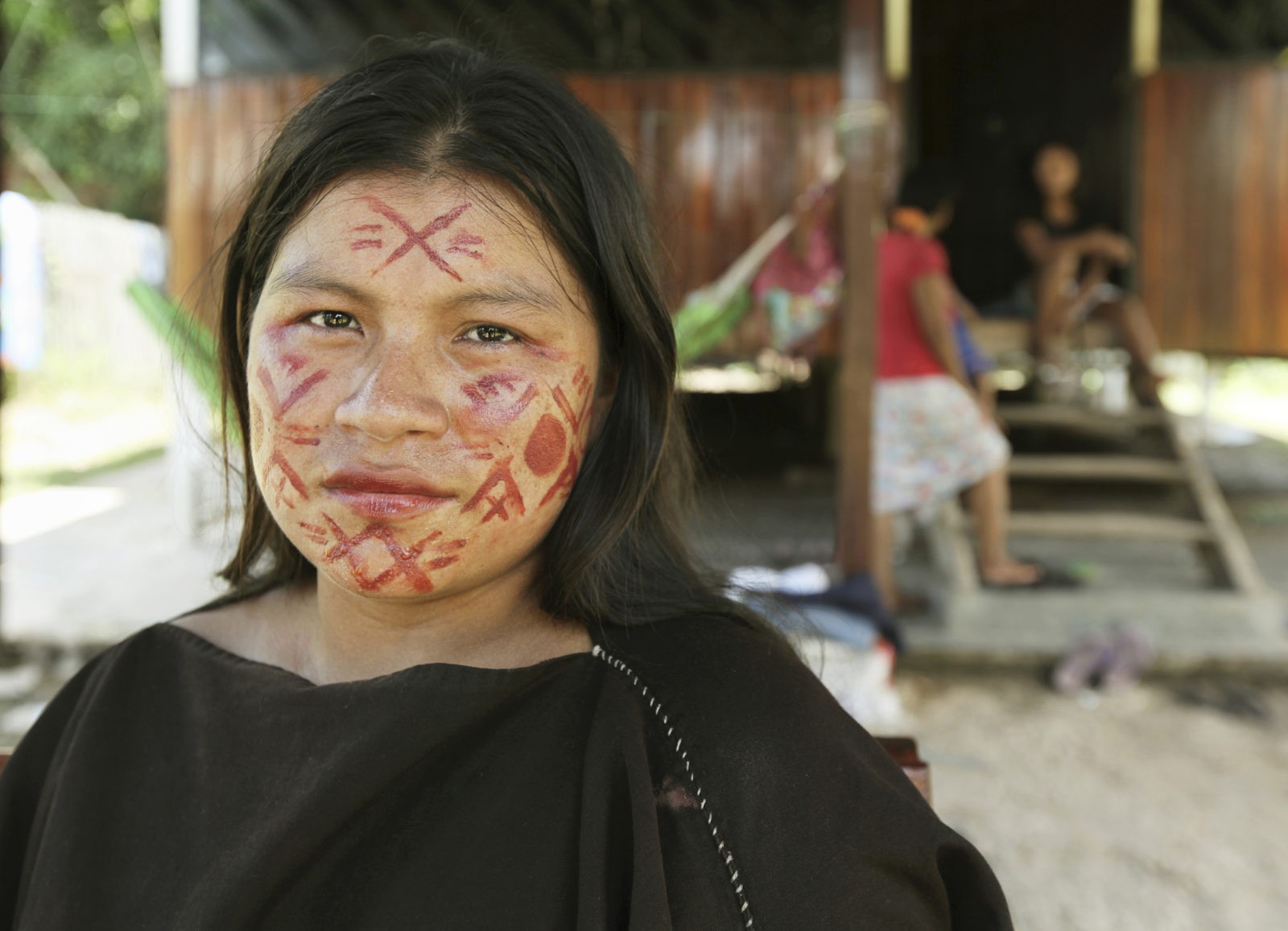
Finally, a step towards justice for environmental defenders: formal murder accusation delivered in Saweto murder case
A massacre in the Rainforest
When indigenous leaders from the remote community of Saweto –Edwin Chota, Jorge Ríos Pérez, Leoncio Quincima Meléndez and Francisco Pinedo–were brutally slain deep in the Peruvian Amazon in 2014, Barack Obama was only halfway through his second term in office, nobody had ever heard the term ‘Brexit’, and it was still a year before world leaders gathered in France to sign the UNFCCC Paris Accord. The world has changed. But for the Asheninka leaders murdered by unscrupulous loggers on September 1, 2014, their tireless quest for fundamental justice continues.
For more than five years, the families of the four murdered leaders have slogged back and forth on a tiny outboard motor (called peque peques) through the heart one of Peru’s most lawless areas, the Tamaya River basin in Ucayali, to appear at hearings, ask the local prosecutor for updates on the investigation, and, more often than not, ask the police and military for protection from the very people who killed their fathers and husbands. There were dozens of meetings in Lima, a case submitted to the ILO, and tireless advocacy by Jorge Rios’ daughter, Diana Rios.
The perpetrators have not been prosecuted and continue to live and loot valuable timber from the forests around Saweto’s territory. At night they drink, taunt and threaten the surviving community members, who survive by collecting food daily from their small farms and fishing the rivers.
Impunity no more
However, on Wednesday, October 30th, 2019, there was a turning point in the case, proving that, for once, justice can be served for people who have endured unfathomable grief, frustration and hardship.
Despite initial international outcry about this case in 2014, declarations protecting environmental defenders, and in depth reports from Global Witness and other organizations about the risks that indigenous peoples face protecting their land and resources, the arrest and prosecution of perpetrators is extremely rare, and it’s almost unprecedented in Peru and in Latin America to see a prosecutor publicly name the intellectual authors of these types of crime.
According to Tom Bewick, Peru Country Director for Rainforest Foundation US, “The prosecutor’s accusation represents legitimate justice in every sense of the word. The persecution and killing of Mr. Chota and indigenous environmental defenders like him is not the result of random violence or an accident. Rather, in most cases, it is precisely because people like Jose Carlos Estrada want them silenced. Now, finally, he is charged as directing and financing this horrible crime.”
The murder of the four Asheninka leaders was carried out at the behest of the Estrada brothers who work for the regional logging company Eco Forestal Ucayali S.A.C.
After years of pressure from Saweto, Rainforest Foundation US and other allies supporting this case, prosecutors have implicated the financiers and authors of this crime using the very words of the deceased Edwin Chota from his submitted complaints.

Diana is today an outspoken leader for the community of Saweto in its quest for justice.
A young daughter picks up the fight
Diana Ríos, the daughter of one of the four murdered leaders, traveled to New York in 2014 to receive the Alex Soros Prize for Environmental Activism. The award paid tribute to her community’s resolve. The community was terrified and traumatized, and the families refused to go home. Nevertheless, Ms. Ríos said she was determined to return and take up her father’s fight.
How it all began
Saweto’s troubles started in 2002, when the Peruvian government awarded logging companies the right to profit form millions of hectares of the country’s rainforest, much of which has been inhabited by indigenous communities like Saweto for centuries, who have struggled to achieve land rights.
Greedy, aggressive logging companies like Eco Forestal Ucayali S.A.C, managed by the Estrada brothers, pounced on this opportunity to ravage the forests of valuable timber, like Mahogany. This dynamic pitted invading loggers directly against indigenous communities fighting for ancestral land rights. This was the case of Saweto, whose president, Edwin Chota, filed multiple complaints to the regional government and police, providing documentation of illegal logging in his area. The complaints led to threats, which Mr. Chota also rigorously documented. His complaints fell on mostly deaf ears in the government, who took no substantive action.
Then, on September 1, 2014, walking in the forest near his community on the Brazilian border, he and the three other activists were shot dead and left to rot. Normally, the remoteness of crime against a poor indigenous leader several days boat ride from the nearest telephone would have been forgotten. But Saweto did not allow that to happen.
Hope for other Indigenous and environmental defenders?
In this accusation, Chota’s legacy and his quest for recognition and protection of Indigenous territories lives on. Sadly, too many environmental defenders, Indigenous and not, continue to be murdered across the Amazon and the world, according to a recent Global Witness report, in 2018 alone, 164 land and environmental defenders were reported killed, which averages out to more than three per week. Many more were attacked or jailed.
The Saweto community and the relatives of the murdered leaders, like Edwin Chota, hope this verdict will lead to more prosecution and more justice for Indigenous communities Peru and the Amazon.
This shows that their lives mean something. And it will show that they are not silenced, but that their words matter for justice, and for all of us who care about vulnerable indigenous communities. Without whom, we can never protect the Amazon.
Now, however, the fight goes on. As this case moves forward, Saweto will be threatened and the perpetrators of this crime and others like them will try to silence Saweto. Please stay tuned.







